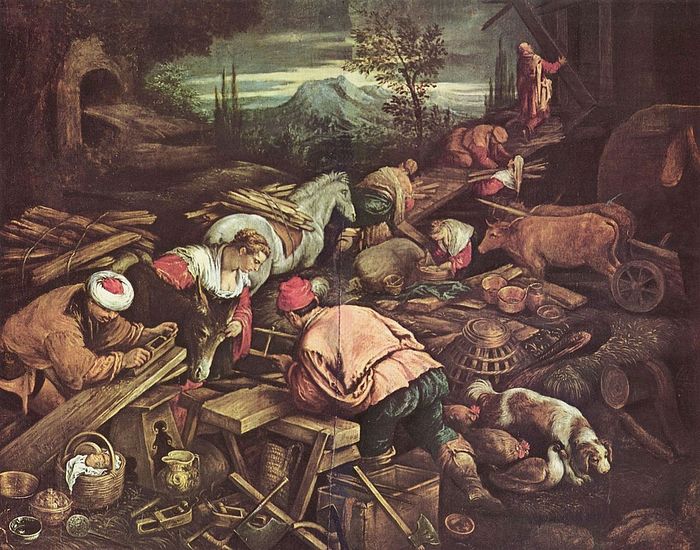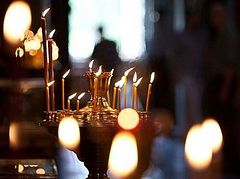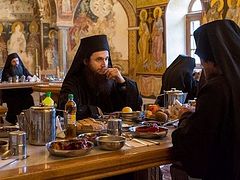A wise son makes a glad father, but a foolish son is the grief of his mother. Treasures of wickedness profit nothing, but righteousness delivers from death (Proverbs 10:1-2).
 The Construction of Noah's Ark by Jacopo Bassano. Photo: artchive.ru
The Construction of Noah's Ark by Jacopo Bassano. Photo: artchive.ru
As the season of the Great Fast continues, it’s easy to let repentance become a thing of complacency. After the initial week of increased services and fasting beginning in earnest, we slowly settle again into our “normal” mode of being; distractions creep back, zeal wavers, and it’s easy to let repentance become a perfunctory task.
The first lines of today’s reading from Proverbs reminds us, though, that the good works of fasting and virtue done during seasons of repentance are not merely tasks of moral improvement. We’re not just trying to better ourselves or make the world a nicer place, though these are good things.
Rather, the deep heart of the season of Great Lent is restoring and deepening our relationship to our loving Father. When we obtain the wisdom to stop sinning, it’s not moral improvement for moral improvement’s sake, but “making a glad father,” Who created us to know Him and His love and to be like Him in His goodness.
Conversely, when we foolishly persist in sin (whether by harmful intention or lazy omission), it’s not simply a moral failing or a broken rule. Rather, it’s “the grief of [our] mother”—our family, the Mother of God, and our Mother the Holy Orthodox Church. Our spiritual life must always be remembered in terms of relationship, the family of God. Our choices which lead us closer to God’s wisdom or away towards foolishness have real saving (and damning) consequences, both on our brethren and ourselves.
Thus we read in Genesis that by following the wisdom of God (which was foolishness to all the earth), Noah saved not only himself but his entire family from the rising floods which destroyed all life on the planet. Noah’s obedience to God wasn’t to fulfill an obligation or to feel like he was a better person than those around him. It was his participation in the righteousness of God, the righteousness that “delivers from death” those who hope in God. “Only Noah and those who were with him in the ark remained alive,” not because of their own morality or good behavior, but because they had drawn near in their hearts to the righteous God Who called them to be delivered from righteous wrath.
This same calling is what is set before us in Great Lent. We’re called not simply to fulfill a rule of fasting or a Church obligation, but to seek the righteous God Who wants to save us from death. We’re invited, in each moment, through prayer, fasting, almsgiving, and repentance, to enter into the ark of the Holy Orthodox Church, which will withstand the rising floods of the times and the culture. We’re commanded to “make our Father glad” by righteous living, that we might live more deeply in His love. Amen.
Used with permission, from the weekly digest of Cleanse Me By Repentance, a Lenten devotional collection prepared by St. Tikhon’s Seminary, authored by its faculty, students, and alumni.
For more information on St. Tikhon’s Seminary or to visit, please write: info@stots.edu.



